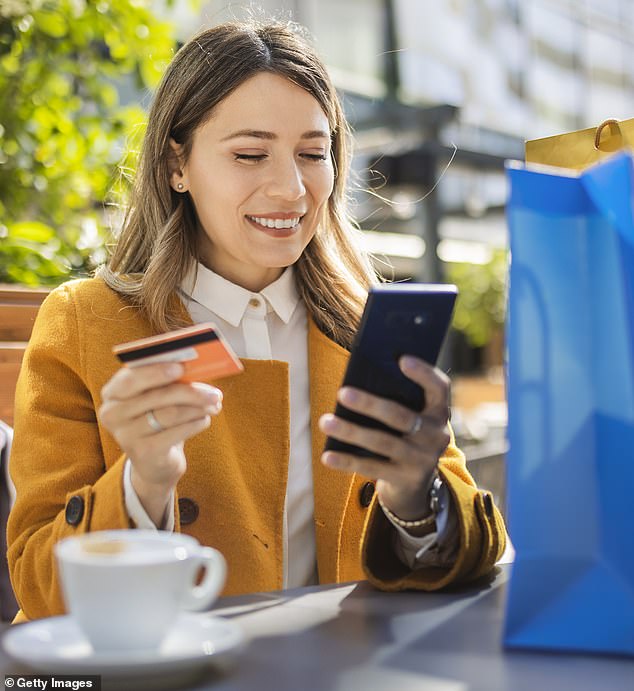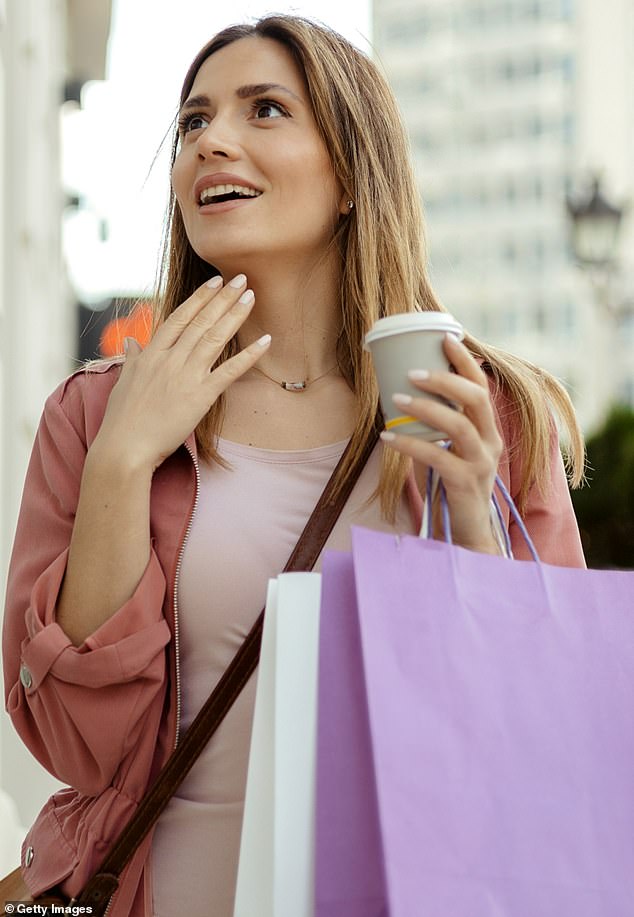Psychologists reveal the popular drink you should avoid before going shopping
The British Society of Psychologists (BPS) has shared a video on TikTok explaining why it may be wise to avoid drinking coffee before going shopping.
According to the clampwhich featured still images of coffee and people drinking it, with written captions underneath: if you drink coffee before shopping, ‘you might want to stop’.
And the reason for that may surprise you.
The video states that drinking coffee before shopping can “increase impulse purchases.”
While the clip was posted recently, it is based on a 2022 study, titled Caffeine’s Effects on Consumer Spending, published in the Journal of Marketing.
Drinking coffee before shopping may lead you to spend more money or be more impulsive with your purchases (stock image)
The study included a number of experiments aimed at determining whether caffeine had an effect on consumer purchasing behavior.
According to the video, “People who drank just one espresso before going to a store spent as much as 50 percent more money than people who drank a decaf coffee.
“Caffeine drinkers report feeling more aroused. When we’re aroused, we tend to be more impulsive.”
The BPS discussed the research at length in a caption accompanying the video, saying: ‘An interesting psychological study reveals effects of caffeine that go far beyond increasing alertness, and are not all good.’
For the study, researchers set up an espresso station at a large retail chain (selling household goods) in France.
For four days, customers received free drinks: some got an espresso made from caffeinated coffee, others got decaffeinated coffee.
Those who received the free coffee had to answer questions about how they felt while shopping (specifically how excited, alert, and sleepy they felt) and share their receipts.
The same experiment was repeated in Spain.

Research from a number of studies has shown that consumers feel more ‘excited’ while shopping after drinking a caffeinated beverage (stock image)
A third experiment in France followed the same procedure. However, this experiment not only tracked household items, but also other product categories.
In the fourth and final study, students drank caffeinated or decaffeinated beverages and were then asked whether they would purchase products from a “relaxation category.”
The BPS described the results of these experiments in an extensive caption accompanying the video: ‘The team found that people who drank just one espresso before entering a store spent as much as 50 percent more money than people who drank a decaf coffee or a glass of water.
‘They also chose ‘highly hedonic’ products, such as buttery foods or relaxing products, more often than useful things.’
In explaining why this might be the case, the BPS noted that participants who drank caffeine reported feeling “more aroused.”

According to the British Psychological Society, it may be useful for budgeters to know that caffeine can affect their shopping habits (stock image)
According to the BPS, this was ‘undoubtedly due to a misperception of a caffeine-induced increased heart rate as ‘excitement’.’
It was also said that ‘when we are excited, we tend to be more impulsive’.
The BPS discussed the results of this research further on its website, noting that the findings could be useful for retailers, who could offer free coffee to customers, which could “potentially deliver a significant return on investment.”
However, the results are also useful for consumers, especially those who have to manage a budget.
While the organization noted that it is external factors, such as the cost of living crisis, that are making people struggle with their grocery spending, it also said that “being aware of the impact of caffeine can help people make small savings or at least be more aware of the potential for unplanned spending.”
.
